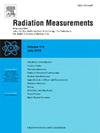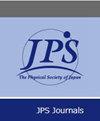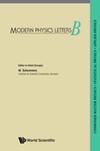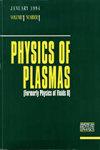中文名称:
辐射测量
期刊缩写:
Radiat. Meas.
影响因子:
2.2
ISSN:
print: 1350-4487
研究领域:
工程技术-核科学技术
创刊年份:
1994年
h-index:
86
自引率:
20.00%
Gold OA文章占比:
26.94%
原创研究文献占比:
99.17%
SCI收录类型:
Science Citation Index Expanded (SCIE) || Scopus (CiteScore)
期刊介绍英文:
The journal seeks to publish papers that present advances in the following areas: spontaneous and stimulated luminescence (including scintillating materials, thermoluminescence, and optically stimulated luminescence); electron spin resonance of natural and synthetic materials; the physics, design and performance of radiation measurements (including computational modelling such as electronic transport simulations); the novel basic aspects of radiation measurement in medical physics. Studies of energy-transfer phenomena, track physics and microdosimetry are also of interest to the journal.
Applications relevant to the journal, particularly where they present novel detection techniques, novel analytical approaches or novel materials, include: personal dosimetry (including dosimetric quantities, active/electronic and passive monitoring techniques for photon, neutron and charged-particle exposures); environmental dosimetry (including methodological advances and predictive models related to radon, but generally excluding local survey results of radon where the main aim is to establish the radiation risk to populations); cosmic and high-energy radiation measurements (including dosimetry, space radiation effects, and single event upsets); dosimetry-based archaeological and Quaternary dating; dosimetry-based approaches to thermochronometry; accident and retrospective dosimetry (including activation detectors), and dosimetry and measurements related to medical applications.
CiteScore:
| CiteScore | SJR | SNIP | CiteScore排名 |
|---|---|---|---|
| 4.1 | 0.463 | 1.038 | 学科 排名 百分位 大类:Physics and Astronomy 小类:Radiation 21 / 58 64% 大类:Physics and Astronomy 小类:Instrumentation 58 / 141 59% |
发文信息
中科院SCI期刊分区
2025年3月20日发布
| 大类 | 小类 | TOP期刊 | 综述期刊 |
|---|---|---|---|
| 3区 物理与天体物理 | 2区 核科学技术 NUCLEAR SCIENCE & TECHNOLOGY | 否 | 否 |
2023年12月发布
| 大类 | 小类 | TOP期刊 | 综述期刊 |
|---|---|---|---|
| 3区 物理与天体物理 |
2区
核科学技术
NUCLEAR SCIENCE & TECHNOLOGY
|
否 | 否 |
WOS期刊分区
| 学科分类 |
|---|
Q2NUCLEAR SCIENCE & TECHNOLOGY |
历年影响因子
| 2015年 | 1.0710 |
|---|---|
| 2016年 | 1.4420 |
| 2017年 | 1.3690 |
| 2018年 | 1.4350 |
| 2019年 | 1.5120 |
| 2020年 | 1.8980 |
| 2021年 | 1.7430 |
| 2022年 | 2.0000 |
| 2023年 | 1.6000 |
| 2024年 | 2.2000 |
历年发表
| 2012年 | 176 |
|---|---|
| 2013年 | 323 |
| 2014年 | 221 |
| 2015年 | 170 |
| 2016年 | 209 |
| 2017年 | 226 |
| 2018年 | 179 |
| 2019年 | 169 |
| 2020年 | 216 |
| 2021年 | 118 |
| 2022年 | 116 |
投稿信息
出版周期:
Bimonthly
出版语言:
English
出版国家(地区):
ENGLAND
接受率:
24%
初审时长:
4 weeks
审稿时长:
48 days
发表时长:
2 weeks
论文处理费:
$3200
出版商:
Elsevier Ltd
编辑部地址:
PERGAMON-ELSEVIER SCIENCE LTD, THE BOULEVARD, LANGFORD LANE, KIDLINGTON, OXFORD, ENGLAND, OX5 1GB
Radiation Measurements - 最新文献
Flattop leakage dose characterization
Pub Date : 2025-09-30 DOI: 10.1016/j.radmeas.2025.107531 A.S. Tamashiro , B. Champine , P. Witter , P. Maggi , D.P. Heinrichs , C. Percher , D.P. Hickman , K.L. Jeffers , R. Radev , L.I. Tai , B. Bandong , T. Classen , R. Hudson , D. McAvoy , J. Scorby , J. Goda , T. Cutler , J.A. Bounds , D. Hayes , D. Ward , M. BaumannDirectional capacity of a two detector array for localization of gamma emitting sources
Pub Date : 2025-09-30 DOI: 10.1016/j.radmeas.2025.107534 Harri Toivonen , Mark Dowdall , Sakari Ihantola , Aliaksandr Dvornik , Maria Karampiperi , Robert Finck , Pernille Ahlmann Jensen , Gísli Jónsson , Philip Holm , Jussi Huikari , Kari Peräjärvi , Christopher Rääf , Viktor Lehmann , Christian BernhardssonExperimental evaluation of radon detector performance under controlled conditions: Statistical assessment and calibration strategy
Pub Date : 2025-09-23 DOI: 10.1016/j.radmeas.2025.107532 A. Noverques, B. Juste, C. Trull-Hernandis, G. Verdu
免责声明:
本页显示期刊或杂志信息,仅供参考学习,不是任何期刊杂志官网,不涉及出版事务,特此申明。如需出版一切事务需要用户自己向出版商联系核实。若本页展示内容有任何问题,请联系我们,邮箱:info@booksci.cn,我们会认真核实处理。
本页显示期刊或杂志信息,仅供参考学习,不是任何期刊杂志官网,不涉及出版事务,特此申明。如需出版一切事务需要用户自己向出版商联系核实。若本页展示内容有任何问题,请联系我们,邮箱:info@booksci.cn,我们会认真核实处理。








